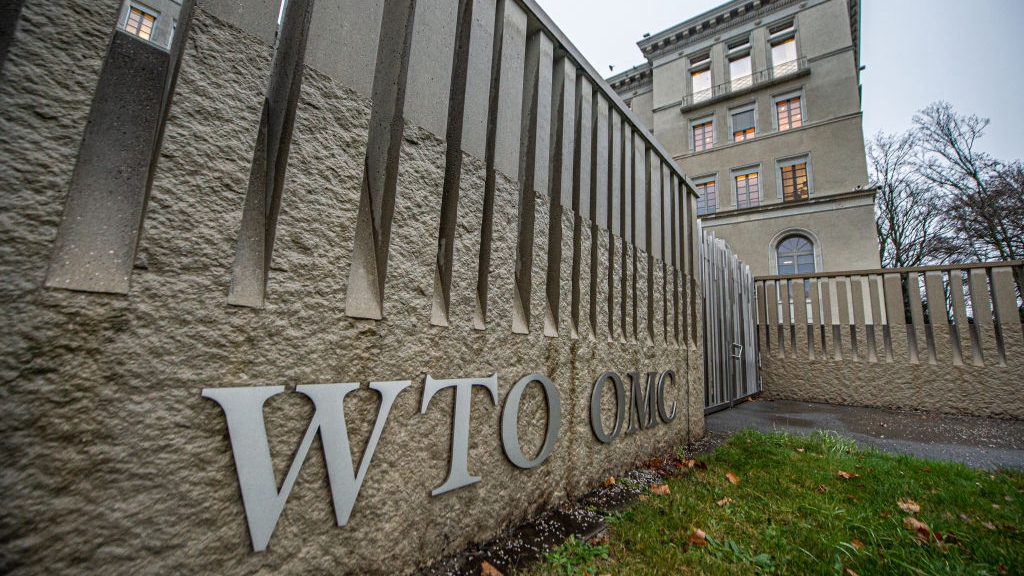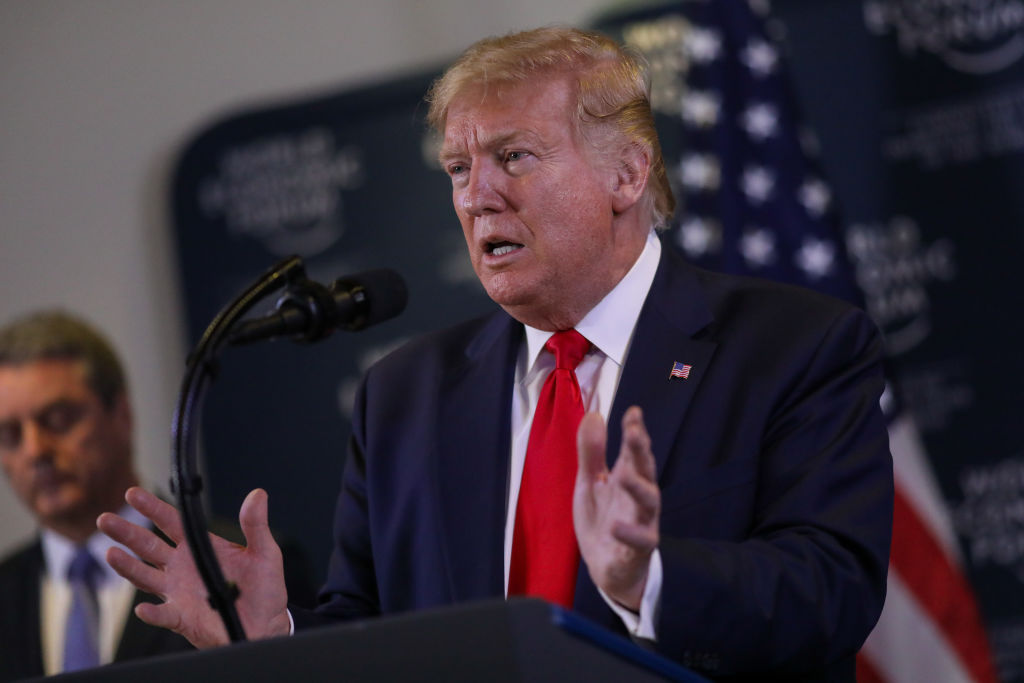
WTO headquarters in Geneva, Switzerland, December 11, 2019. /Getty
WTO headquarters in Geneva, Switzerland, December 11, 2019. /Getty
Editor's note: Andrew Korybko is a Moscow-based American political analyst. The article reflects the author's opinion, and not necessarily the views of CGTN.
The World Trade Organization (WTO) failed to reach the consensus necessary to appoint its next director general after the U.S. was the sole country which refused to endorse frontrunner Dr. Ngozi Okonjo-Iweala, an experienced World Bank professional and two-term former finance minister of Nigeria.
Instead, the Trump administration threw its weight behind the Republic of Korea's Minister of Trade Yoo Myung-hee with whom it previously negotiated amendments to the United States-Korea Free Trade Agreement prior to her current position when she was still part of a team involved with that issue.
The resultant stalemate threatens to impede the WTO's ability to influence events across the world during this historical moment for globalization in the midst of widespread uncertainty about its future following the world's uncoordinated attempt to contain COVID-19.
The organization needs a new director general as soon as possible, but the Trump administration's stubbornness in being the only country to oppose Dr. Ngozi's candidacy threatens to cause more problems for global trade, which might actually be the point. In fact, it's been argued by some that the U.S.'s resistance is driven by purely ideological motivations.
This suspicion becomes more obvious when analyzing the statement released by the U.S. trade representative on the issue. It speaks about the need for far-reaching reforms and someone with "real, hands-on experience in the field" taking the reins of the organization to guide it in America's preferred direction during these turbulent times.
The innuendo is that Yoo is the right woman for the job in the U.S.'s eyes because of her experience negotiating the Trump administration's first successful trade deal back in 2018. By contrast, Bloomberg reported that Trade Representative Lighthizer regards Dr. Ngozi as "too close to pro-trade internationalists."
What's most interesting about this is that Dr. Ngozi obtained American citizenship in 2019, so the Trump administration is literally going against one of its own citizens leading the WTO despite what observers might have expected it to do considering its nationalist policies with respect to other issues.

U.S. President Donald Trump speaks during a news conference with Roberto Azevedo, director general of the WTO, on the World Economic Forum (WEF) in Davos, Switzerland, January 22, 2020. /Getty
U.S. President Donald Trump speaks during a news conference with Roberto Azevedo, director general of the WTO, on the World Economic Forum (WEF) in Davos, Switzerland, January 22, 2020. /Getty
Upon further contemplation, however, it becomes clear that its motivations are actually so nationalist that they surpass any superficial nationalism such as citizenship and delve deep into the realm of ideology, which explains why Dr. Ngozi is opposed despite being a U.S. citizen while Yoo is supported because of the U.S. approval of her policies.
The outcome of the WTO director general dispute won't be known until at least November 9 when it tentatively plans to hold a General Council meeting. Bloomberg also reported that it might be postponed until after the inauguration on January 20 in the event that former Vice President Biden wins this week's presidential election.
In that case, it can be expected that the new president would stop obstructing the will of the international community and finally go along with Dr. Ngozi's candidacy. If Trump is re-elected, however, then the gridlock will probably continue unless the U.S. pressures others to support Yoo or surprisingly concedes.
There are several important takeaways from this dispute regardless of however it ends. The first is that the WTO's system of consensus grants a single country disproportionate leverage over the entire organization's affairs.
While most other states would probably go along with the popular will of the international community for the sake of pragmatism, the Trump administration is exploiting this privilege to sabotage the organization for ideological reasons. It's basically holding the entire WTO hostage to its demands, threatening to neutralize the organization's effectiveness if it doesn't get its way despite literally no other country supporting Yoo.
Building upon this observation, it can be predicted that any prolonged weakening of the organization such as in the scenario that Trump wins re-election will probably result in regional organizations becoming more important as pragmatic workarounds.
The WTO is obviously the ideal venue for discussing and regulating global trade issues, but should it remain indefinitely gridlocked under a second Trump administration, then most countries might not have any other choice but to explore other means for carrying out its responsibilities. This could lead to more global economic uncertainty and instability, which isn't what the world needs.
(If you want to contribute and have specific expertise, please contact us at opinions@cgtn.com.)